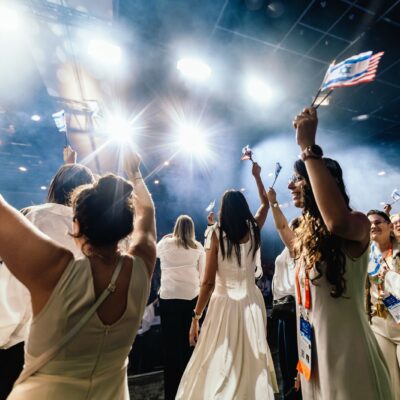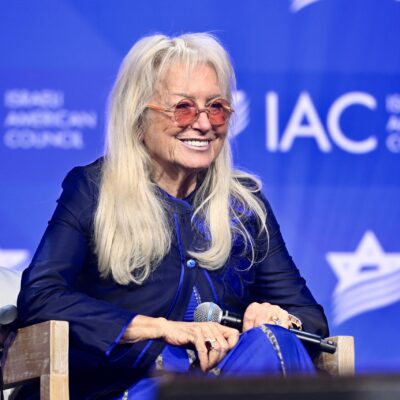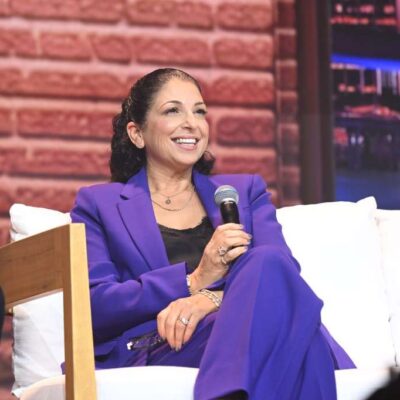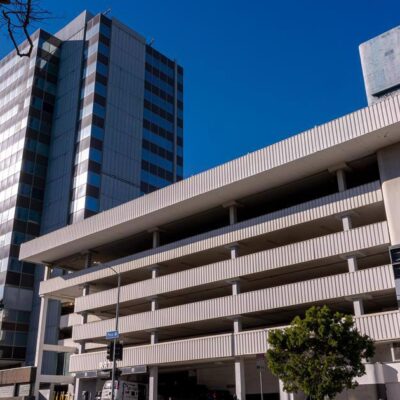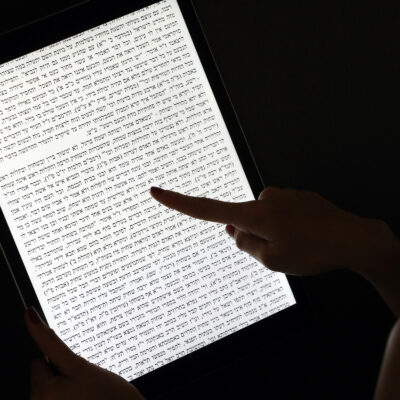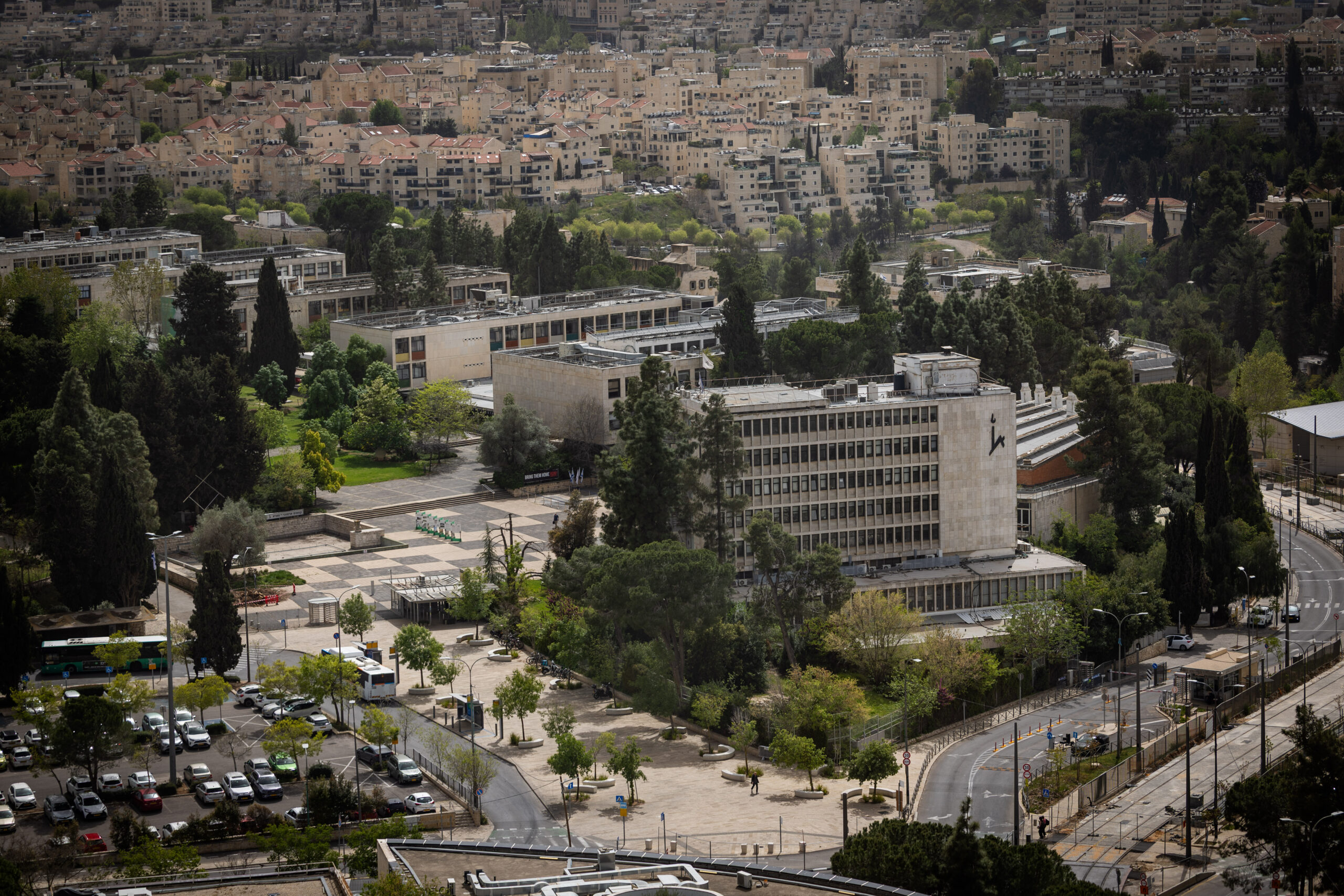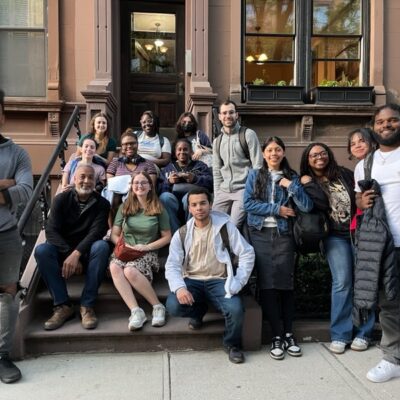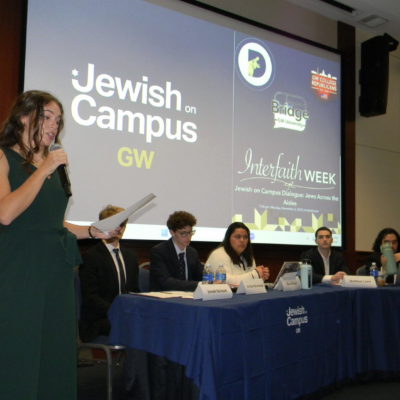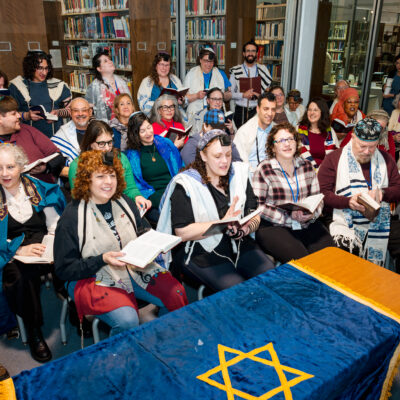Opinion
STUDENT VOICES
Once more into the fray, but not alone

Next week, I will return to Columbia University as a senior. Most people assume that I’m dreading going back, and in some senses, I am. I have no desire to re-experience all of the antisemitism I went through last year. At the same time, returning to Columbia means that I, along with the rest of my Jewish peers, have a tremendous opportunity to make a kiddush Hashem (sanctification of God’s name.)
When I started at Columbia as a freshman, my Jewish identity hung in a state of limbo. My Modern Orthodox upbringing was all I’d ever known, and in college, it seemed like I had access to the whole world of diverse Jewish practice at my fingertips. I was eager to explore. Over my first two years of college, I experienced the beauty of other Jewish communities. Still, I always felt like something fundamental to my Yiddishkeit was missing.
In my junior year, I decided to return to my roots, and in a sense return to Hashem. I began spending more time with the Orthodox Union’s Jewish Learning Initiative on Campus (OU-JLIC) community. Rabbi Elie Buechler (aka Rav Elie) and his wife Tamar, the couple leading JLIC at Columbia, welcomed me into an incredibly close-knit and connected Orthodox community on campus. Through various JLIC programs and Shabboses, I found what I was looking for: a renewed connection with Hashem, a passionate community that shares my values and a rabbi excited about helping college students maintain their observance even in secular — and in the last year, hostile — environments.
Admittedly, Oct. 7 threw a wrench in my spiritual growth. Attending minyan (prayer services) began feeling like a commitment somehow simultaneously too large and too trivial to take on at that moment. The fire I had burning inside me, pushing me to learn in our beit midrash (house of study) every morning, felt replaced by a deep sense of grief mixed with anger. Furthermore, my perception of my own religiosity shifted: Because it felt like the entire world was scrutinizing the Columbia Jewish community, it stopped feeling like something I could work on at my own pace.
A couple of weeks after Oct. 7, I was asked by the Hillel administration at Columbia if I would help revive Aryeh, a pro-Israel group on campus that strives to bring nuance into the conversations about Israel, Zionism and antisemitism at Columbia. Immediately thrust into the world of Israel activism, my classes became a side gig and combatting antisemitism on campus became a full-time job. Along the way, I experienced a lot of anti-Jewish discrimination; if it wasn’t for my tight-knit Jewish community on campus, I doubt I would have been able to sustain my Jewish identity amid constant attacks from the outside.
Rav Elie made it clear to everyone in the Orthodox community that just because so much of our time on campus was consumed by defending our Jewish identities and our inherent connections to Israel, that didn’t mean that our Yiddishkeit only existed in opposition to antisemitism. Indeed, it was vital that we maintain and foster our Jewish identities outside of the external attacks we were facing. One way I grounded myself was by attending JLIC shiurim (study sessions.) Every Wednesday evening, Rav Elie led a JLIC shiur on Reish Millin, a book by Rabbi Abraham Isaac Kook that talks about the mystical meaning of the Hebrew alphabet. My peers and I would delve into the Kabbalistic universe of Rav Kook, forgetting the material world and connecting to God through words of Torah. The shiur became a fixture of my week that I could point to and say: Even when it feels like everything is falling apart, this bit of Torah would be here to catch me.

Engaging with a Jewish community for Judaism’s sake — and not just because antisemites are telling you that you should go back to Poland — is crucial to thriving as an observant student on a hostile secular college campus. By nurturing our Jewish identities for the sake of God, rather than for the sake of our attackers, the JLIC community at Columbia grew in passion and rigor. Through feeling confident in our Jewish identities, we in turn had the bandwidth and mental energy to engage with antisemitism on campus.
For example, when Aryeh, my student group, decided to host a “tabling” event on campus after winter break, I asked around the broader Columbia Jewish community to find people who had spent their winter break in Israel and were comfortable speaking about their experience publicly with non-Jewish students. Every single student who volunteered was involved with JLIC. Those five students and I spent numerous hours sitting at a table in a public space with a sign that said, “I spent my winter break in Israel, ask me about it.” While we did receive a lot of mean looks, strangers also came up to us with earnest questions: What was it like to be in Israel during wartime? What it was like seeing the destruction at the Nova Festival site and the kibbutzim?
One way we humanized Israel for the students walking by was by displaying photos from our winter break. I found that one photo in particular — an image of a worn-out Adidas shoe amid the rubble of a destroyed home in Kibbutz Be’eri — really impacted people. I pointed out to people that I, here and alive, was also wearing Adidas shoes, but the owner of the shoe in Kibbutz Be’eri was murdered. The juxtaposition underscored the fact that Israelis are real people, with some even wearing the same clothing we do here in America until their brutal end.
Before starting college, I wasn’t known for being Jewish. I attended Modern Orthodox schools in Atlanta, and in a space where everyone was Jewish, I was just known for being me. It wasn’t a big deal to me to wear skirts every day, for instance; but in college, people began recognizing me as different from them, as a Jew. This meant that having good middot (character traits) was of utmost importance, but that became especially true after Oct. 7. Jews were in the spotlight, and we will continue to be in it this coming semester. What an incredible opportunity to be a kiddush Hashem and represent Jews in a positive light to other students as well as professors.
I would tell incoming college students that finding a supportive community such as JLIC is crucial. Once you find your support group on campus, you have people to lean on and rabbis such as Rav Elie to encourage you when you might feel alone. Whether you find that you’re the only vocal Zionist in your class, or you (God forbid) experience antisemitism, there is always someone you can count on.
I’m convinced that Hashem sent me to Columbia for a reason. When the semester begins, other passionate students and I will continue to do everything we can to be a voice for Israel and shine a light on campus antisemitism. In addition to everything I did last semester, which I will keep doing, I just started a podcast called “The Uproar“, currently on Spotify, aiming to deepen the conversations about antisemitism on campus and the future of Judaism in America.

When the semester begins next week, I’m confident that Jewish students on secular college campuses will continue to be loud and proud about Israel. With a supportive community behind us, we will be strong. Am Yisrael chai.
Eliana Goldin is a senior at Columbia University and The Jewish Theological Seminary. She is co-chair of Columbia Aryeh, an Israel engagement project on Columbia’s campus, and hosts and produces her own podcast, “The Uproar.”

 Add EJP on Google
Add EJP on Google